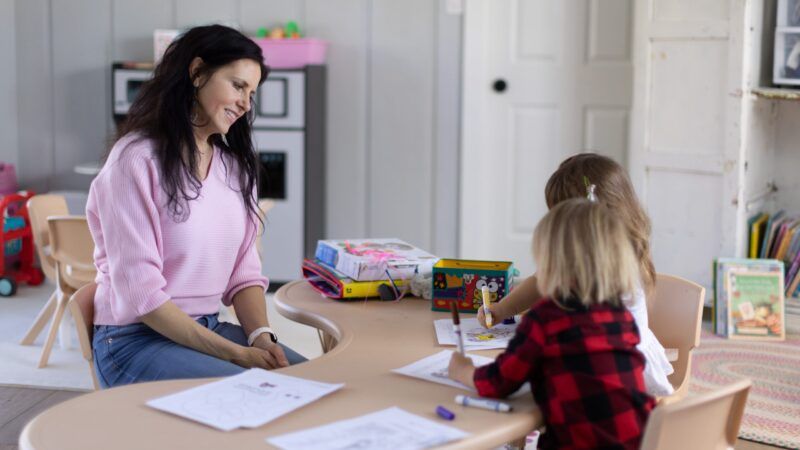School Choice Faces a New Threat: Local Code Enforcers
Enemies of educational freedom are using inane regulations to target learning pods.

Teachers unions have a new ally in their fight against school choice: local code enforcers. A fire marshal in Cobb County, Georgia, even threatened to punish churches for hosting study groups.
Violation notices, which the fire marshal mailed this summer, explained that families can meet in church buildings for religious purposes. But property owners need a special certificate of occupancy if they host a "learning pod," a small group of students who come together voluntarily to supplement compulsory educational requirements. Pods gained popularity during the COVID-19 pandemic as a way to combat learning loss from lack of in-person instruction.
Variations abound. Cobb County targeted parents who were using learning pods to blend homeschooling with traditional classroom instruction. Participating families pooled their resources and hired professional teachers a couple days per week. Yet without a government permission slip, the groups risked $1,000 daily fines. Arrows Academy, a learning pod in Acworth, Georgia, shut down to avoid the penalty.
Fortunately, the fire marshal canceled his enforcement plan after our public interest law firm, the Institute for Justice, alerted him that the crackdown would violate a state law that Georgia passed in 2021 to protect learning pods and similar educational cooperatives from unnecessary regulations.
Georgia, the first state to pass such a law, deserves credit for showing leadership on the issue. Cobb County deserves credit for its prompt course correction. Yet obstacles to educational innovation remain in place elsewhere.
Broward County, Florida, insists that pod families need a special license to assemble. Illinois made a similar claim in a July 13 letter. Regulators in Austin, Texas, require host families to register as child care providers if they receive any type of compensation. Groups larger than six need further approvals. The State Policy Network, a nonprofit think tank, catalogs additional regulatory roadblocks for pod families in Maine, New York, North Carolina, Oregon, Pennsylvania, South Carolina, and Washington state.
School choice advocates already face smears from teachers union and education establishment insiders, who have called pod parents "segregationists" and "opportunity hoarders." Now these same parents must battle the zoning police and other code enforcers.
Many small business owners are familiar with the hassle of trying to provide in-home services. Boston, San Francisco, and Newark, New Jersey, outlaw all client visits in someone's home, which makes home-based tutoring impossible. Other cities allow home-based tutors to host one client at a time, which means music teachers could give one-on-one piano lessons in their living rooms, but not teach small groups.
Meanwhile, regulators told Bianca King she could not provide babysitting at her home in Lakeway, Texas. Regulators told Pat Raynor she could not do hairstyling at her home in Nashville. And regulators told Akhila Murphy and Donna Peizer they could not help families plan home-based funerals and wakes in California.
Such restrictions violate property rights, association rights, and the ability to earn an honest living without excessive or unreasonable government interference. Would-be customers also lose access to desired goods and services.
Blocking a learning pod touches on all of these fundamental rights. When Arrows Academy closed, for example, 20 teachers lost their jobs, more than 100 students lost their place to congregate, and a church lost opportunities to serve its community. Going after learning pods also violates the right of parents to direct the education of their children. Few things are more personal.
Parents understand better than anyone that one size does not fit all in education. They need the freedom to pick and choose from available options or design their own. Regulators should not interfere in this process without good reason. For the local fire marshal, this means letting learning pods gather anywhere safe—which would include churches already approved for large congregations. If a structure is suitable for singing hymns, praying, and reading scripture, then it would work equally well for discussing math, history, and science. Rafters and walls don't distinguish between Sunday school and Monday school.
Cobb County will let families gather in fall 2022. Code enforcers in other jurisdictions should follow this example. Teachers unions see learning pods as a threat, but they don't need extra help to protect their multibillion-dollar education monopoly.


Show Comments (19)